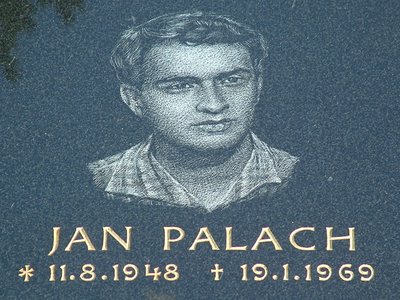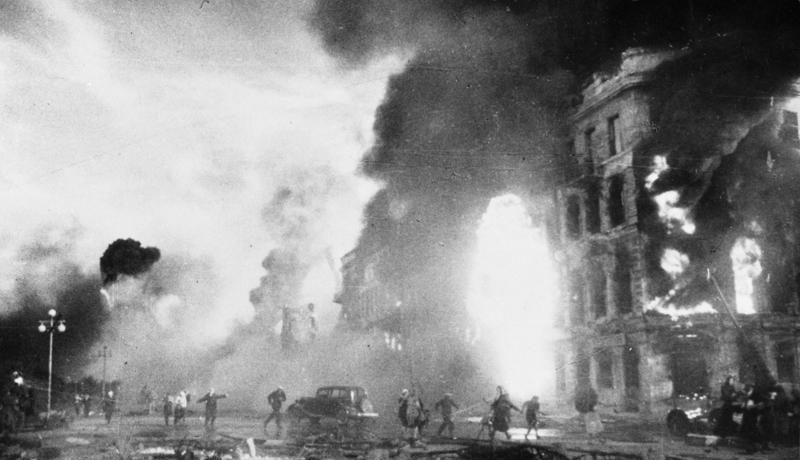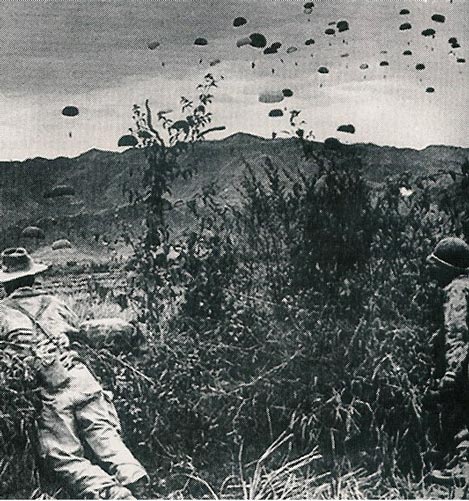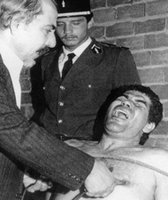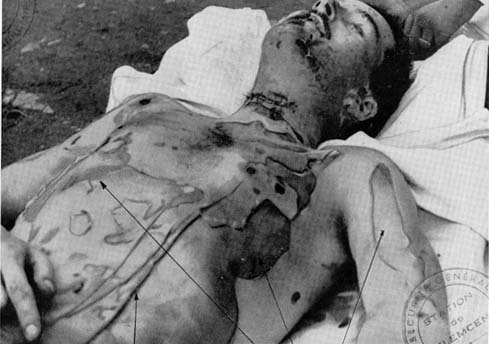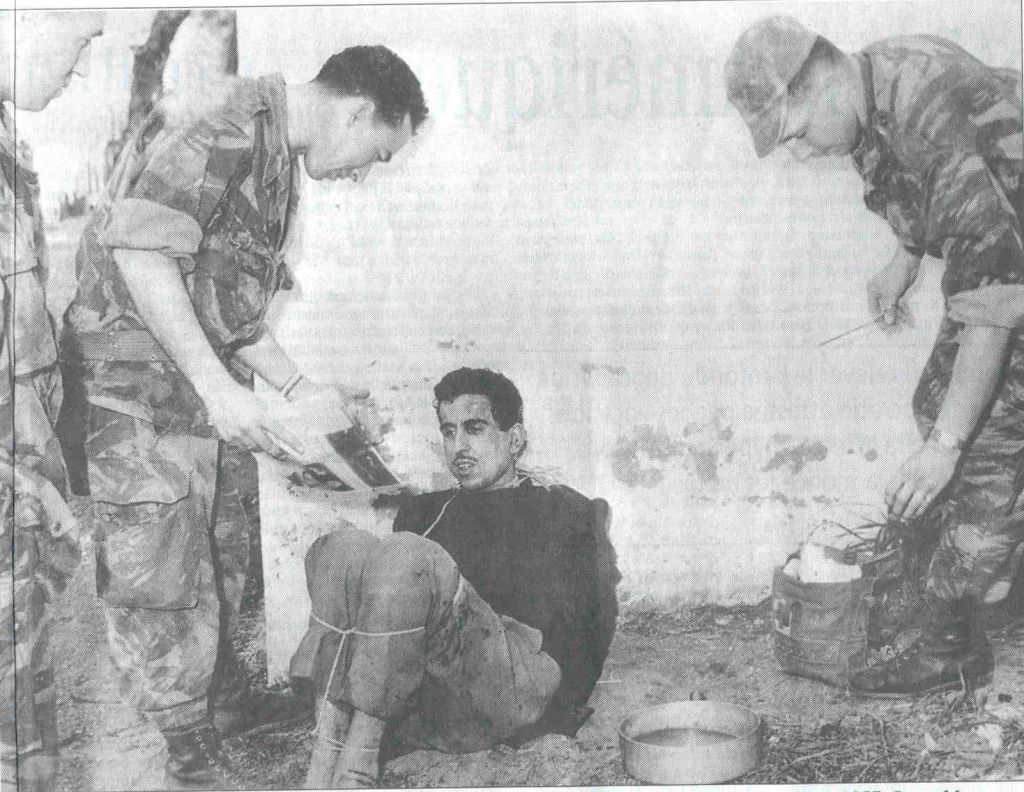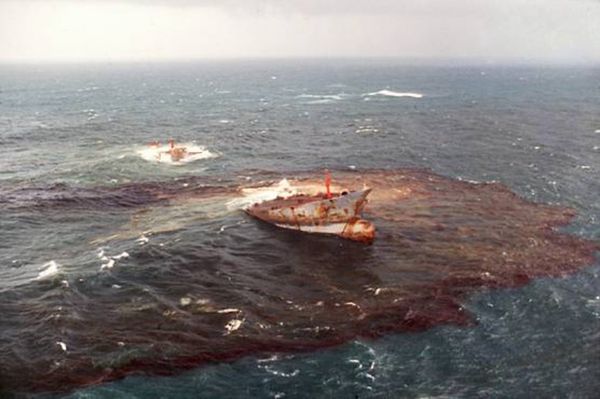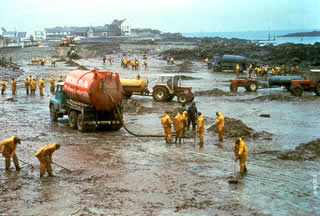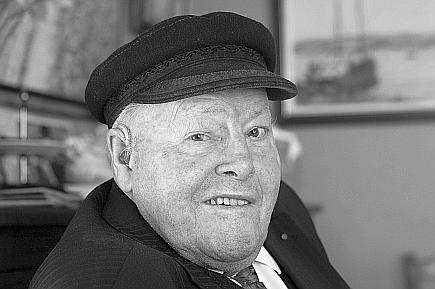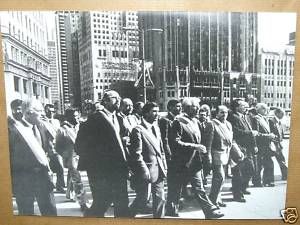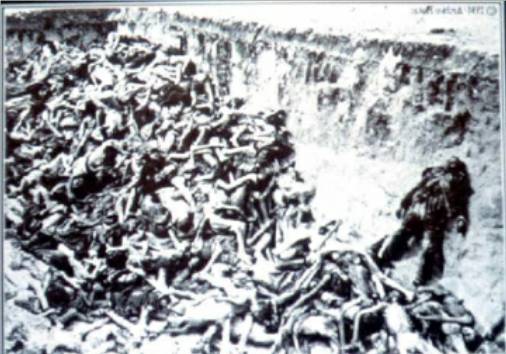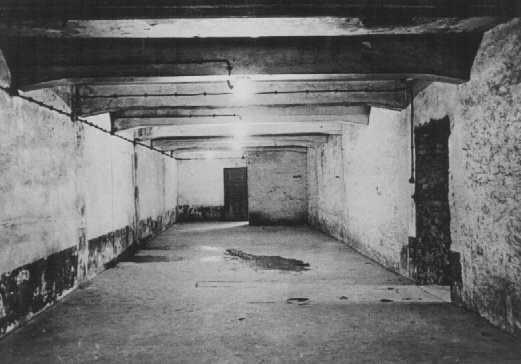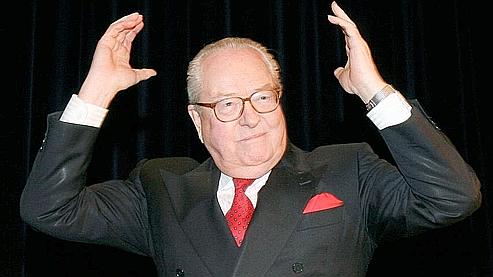- Posts: 3755
- Thank you received: 3612
Today In History
- Nikita
-
 Topic Author
Topic Author
- Offline
- "Never interrupt an enemy who's making a mistake." Napoléon Bonaparte
Less
More
13 years 1 month ago - 13 years 1 month ago #115
by Nikita
Replied by Nikita on topic Today In History
January 16, 1969
To protest against the Soviet invasion of his country, the Czech student Jan Palach commit suicide by self-immolation on Wenceslas Square in Prague. He dies three days later, consequences of his wounds, at the Charles University Faculty Hospital.
There are flames that we never can extinguish, the peoples know it, the tyrants will know it...
To protest against the Soviet invasion of his country, the Czech student Jan Palach commit suicide by self-immolation on Wenceslas Square in Prague. He dies three days later, consequences of his wounds, at the Charles University Faculty Hospital.
There are flames that we never can extinguish, the peoples know it, the tyrants will know it...
Last edit: 13 years 1 month ago by Nikita.
The following user(s) said Thank You: snowman, Domi
Please Log in or Create an account to join the conversation.
- Juanma66
-

- Offline
Less
More
- Posts: 277
- Thank you received: 353
13 years 2 weeks ago - 13 years 2 weeks ago #116
by Juanma66
not fear the enemy that attacks you,
be afraid of the false friend that hugs you
Replied by Juanma66 on topic Today In History
Returns to the map Stalingrad
The Russian city of Volgograd remember the 70th anniversary of the Soviet victory over Nazi Germany in one of the bloodiest battles that changed the course of Mundia War.
The Russian city of Volgograd Stalingrad awoke as a day to celebrate and the 70th anniversary of the Soviet victory in the historic battle against Nazi Germany that changed the course of World War II. About 20,000 people attended the solemn military march in the Plaza of the Fallen Fighters, led by the legendary Soviet T-34 tank, armored core weapon of the Red Army during that war, and starring 650 soldiers, officers and cadets of the Body Volgograd Cossack.
Russian President Vladimir Putin traveled to the city to lay flowers at the Pantheon of Glory, crowned by the statue of the Motherland. Shortly thereafter, during the concert in honor of the victory and the war veterans, the Russian president said that the battle of Stalingrad is remembered and honored not only in Russia but in dozens of countries and cities around the world and especially Europe, where streets and squares are named after the city.
"Stalingrad will be for ever and ever the symbol of unity and the invulnerability of our people, a symbol of true patriotism, the great victory of the Soviet liberator soldier. And while we are faithful to Russia, to our language and culture, to our roots (...) Russia will be invincible, "he exclaimed. The legendary city of southeast Russia, bordered by the River Volga, recalled the bloodiest chapter in history, the first urban battle that had to face, between July 1942 and February 1943, the hitherto virtually invincible German Army .
About two million people, including civilians and Soviet and German soldiers perished on the banks of the largest river in Europe during the 200 days exactly that tipped the balance of the war in favor of the Soviet Union and the Allies. Among the victims of Stalingrad was Ibarruri Ruben Ruiz, the only son of the Spanish communist leader Dolores Ibarruri Gomez, best known for Passion, who had emigrated to the Soviet Union after the defeat of the republican side in the civil war that tore Spain between 1936 and 1939.
The only son of the Passion, who had fought in his native country, died on September 14, 1942 in Stalingrad, after which he was posthumously honored as a Hero of the Soviet Union, the highest award in the communist country. At Stalingrad, renamed Volgograd, where more than a million people, almost everything reminisces Stalingrad heroic past.
The city is dotted with countless monuments to the Soviet victory with his size and oppress merciless drama and not let visitors forget the suffering and death. Many survivors of war and not a few of their descendants, grown in the memory of the stoicism of the city, they want the name for a day now regained their homeland will remain forever.
To them have been circulating since and until May 9, when Russians celebrate Victory Day over Nazi Germany, five stalinobuses, the controversial buses with the image of Soviet dictator Joseph Stalin. The initiative, widely criticized by human rights advocates and liberal opposition, wants to highlight the crucial role of Stalin in the victory over the Germans, what they consider an act of "historical justice".
Never mind that the role of the dictator, according to most contemporary historians, condemned to death for millions of people and reduced the city to ashes practically. "It's time to stop the withdrawal. Not one step back," read the speech of Stalin troops in July 1942, the famous directive 227 that left no option to go back and why punitive battalions were created, they should strafe to those who would whisk retreating.
The city was destroyed by the German air and artillery, but with the Soviets on the ball, the troops of Marshal Von Paulus was forced to fight house to house on the ruins of the buildings in the middle of a harsh winter with temperatures to 40 degrees below zero, something that could not endure. Stalingrad marked the beginning of the great Soviet counteroffensive that began with the expulsion of the Nazi invader and ended with the capture of Berlin in 1945
The Russian city of Volgograd remember the 70th anniversary of the Soviet victory over Nazi Germany in one of the bloodiest battles that changed the course of Mundia War.
The Russian city of Volgograd Stalingrad awoke as a day to celebrate and the 70th anniversary of the Soviet victory in the historic battle against Nazi Germany that changed the course of World War II. About 20,000 people attended the solemn military march in the Plaza of the Fallen Fighters, led by the legendary Soviet T-34 tank, armored core weapon of the Red Army during that war, and starring 650 soldiers, officers and cadets of the Body Volgograd Cossack.
Russian President Vladimir Putin traveled to the city to lay flowers at the Pantheon of Glory, crowned by the statue of the Motherland. Shortly thereafter, during the concert in honor of the victory and the war veterans, the Russian president said that the battle of Stalingrad is remembered and honored not only in Russia but in dozens of countries and cities around the world and especially Europe, where streets and squares are named after the city.
"Stalingrad will be for ever and ever the symbol of unity and the invulnerability of our people, a symbol of true patriotism, the great victory of the Soviet liberator soldier. And while we are faithful to Russia, to our language and culture, to our roots (...) Russia will be invincible, "he exclaimed. The legendary city of southeast Russia, bordered by the River Volga, recalled the bloodiest chapter in history, the first urban battle that had to face, between July 1942 and February 1943, the hitherto virtually invincible German Army .
About two million people, including civilians and Soviet and German soldiers perished on the banks of the largest river in Europe during the 200 days exactly that tipped the balance of the war in favor of the Soviet Union and the Allies. Among the victims of Stalingrad was Ibarruri Ruben Ruiz, the only son of the Spanish communist leader Dolores Ibarruri Gomez, best known for Passion, who had emigrated to the Soviet Union after the defeat of the republican side in the civil war that tore Spain between 1936 and 1939.
The only son of the Passion, who had fought in his native country, died on September 14, 1942 in Stalingrad, after which he was posthumously honored as a Hero of the Soviet Union, the highest award in the communist country. At Stalingrad, renamed Volgograd, where more than a million people, almost everything reminisces Stalingrad heroic past.
The city is dotted with countless monuments to the Soviet victory with his size and oppress merciless drama and not let visitors forget the suffering and death. Many survivors of war and not a few of their descendants, grown in the memory of the stoicism of the city, they want the name for a day now regained their homeland will remain forever.
To them have been circulating since and until May 9, when Russians celebrate Victory Day over Nazi Germany, five stalinobuses, the controversial buses with the image of Soviet dictator Joseph Stalin. The initiative, widely criticized by human rights advocates and liberal opposition, wants to highlight the crucial role of Stalin in the victory over the Germans, what they consider an act of "historical justice".
Never mind that the role of the dictator, according to most contemporary historians, condemned to death for millions of people and reduced the city to ashes practically. "It's time to stop the withdrawal. Not one step back," read the speech of Stalin troops in July 1942, the famous directive 227 that left no option to go back and why punitive battalions were created, they should strafe to those who would whisk retreating.
The city was destroyed by the German air and artillery, but with the Soviets on the ball, the troops of Marshal Von Paulus was forced to fight house to house on the ruins of the buildings in the middle of a harsh winter with temperatures to 40 degrees below zero, something that could not endure. Stalingrad marked the beginning of the great Soviet counteroffensive that began with the expulsion of the Nazi invader and ended with the capture of Berlin in 1945
not fear the enemy that attacks you,
be afraid of the false friend that hugs you
Last edit: 13 years 2 weeks ago by snowman.
The following user(s) said Thank You: snowman
Please Log in or Create an account to join the conversation.
- snowman
-

- Offline
- Your most dear friend.
13 years 2 weeks ago #117
by snowman
"Straight and narrow is the path."
Replied by snowman on topic Today In History
I changed the topic. Correct me if I'm wrong.
"Straight and narrow is the path."
The following user(s) said Thank You: Juanma66
Please Log in or Create an account to join the conversation.
- Nikita
-
 Topic Author
Topic Author
- Offline
- "Never interrupt an enemy who's making a mistake." Napoléon Bonaparte
Less
More
- Posts: 3755
- Thank you received: 3612
12 years 11 months ago - 12 years 11 months ago #118
by Nikita
March 13, 1954
In Dien Bien-Phu , in French Indochina, begins the battle that will definitely seal the fate of French paratroopers of General de Castries facing the Viet Minh troops leaded by General Giap. This battle, which will last nearly two months, marks the end of the French colonies in this part of the world. A few months later, in Algeria, begins the Algerian uprising, that France has worked so hard to call "war"*, and that will end in 1962 by the Algerian independence. Same reasons, same effects for that the French singer Jean Ferrat will call, rightly, "the wars of the lie."
"Nous disions que la guerre était perdue d'avance
Et 100 000 Français allaient mourir en vain
Contre un peuple luttant pour son indépendance
Oui, vous avez un peu de ce sang sur les mains."
We said that the war was already lost
And 100 000 French soldiers would die in vain
Against a people fighting for its independence
Yes, you have some of this blood on your hands.
* EDIT : Speaking about the Algeria war, and in order to be quite clear about what i want to say here, you should know that the official French speech at this times, widely reported by complacent medias, do not use the term "war" but rather "events", "pacification" or "policing operations". We will find that for a long time after 1962 in the history books of French schools. In the same vein, the torture practiced at that time by some elements of the French army on prisoners "rebels", which is something historically proven, is often reverently described as "harsh interrogation"... As far as i know, France, "the country of human rights", has never answered about that, that what i call a war crime, facing any international court...
"No one shall be subjected to torture or to cruel, inhuman or degrading treatment or punishment."
Universal declaration of human rights - Article 5
Signed in Paris, at the Palais de Chaillot, on December 10, 1948
"Us" and "them", or the French way of soft speaking...
Replied by Nikita on topic Today In History
March 13, 1954
In Dien Bien-Phu , in French Indochina, begins the battle that will definitely seal the fate of French paratroopers of General de Castries facing the Viet Minh troops leaded by General Giap. This battle, which will last nearly two months, marks the end of the French colonies in this part of the world. A few months later, in Algeria, begins the Algerian uprising, that France has worked so hard to call "war"*, and that will end in 1962 by the Algerian independence. Same reasons, same effects for that the French singer Jean Ferrat will call, rightly, "the wars of the lie."
"Nous disions que la guerre était perdue d'avance
Et 100 000 Français allaient mourir en vain
Contre un peuple luttant pour son indépendance
Oui, vous avez un peu de ce sang sur les mains."
We said that the war was already lost
And 100 000 French soldiers would die in vain
Against a people fighting for its independence
Yes, you have some of this blood on your hands.
* EDIT : Speaking about the Algeria war, and in order to be quite clear about what i want to say here, you should know that the official French speech at this times, widely reported by complacent medias, do not use the term "war" but rather "events", "pacification" or "policing operations". We will find that for a long time after 1962 in the history books of French schools. In the same vein, the torture practiced at that time by some elements of the French army on prisoners "rebels", which is something historically proven, is often reverently described as "harsh interrogation"... As far as i know, France, "the country of human rights", has never answered about that, that what i call a war crime, facing any international court...
"No one shall be subjected to torture or to cruel, inhuman or degrading treatment or punishment."
Universal declaration of human rights - Article 5
Signed in Paris, at the Palais de Chaillot, on December 10, 1948
"Us" and "them", or the French way of soft speaking...
Last edit: 12 years 11 months ago by Nikita.
The following user(s) said Thank You: snowman
Please Log in or Create an account to join the conversation.
- Nikita
-
 Topic Author
Topic Author
- Offline
- "Never interrupt an enemy who's making a mistake." Napoléon Bonaparte
Less
More
- Posts: 3755
- Thank you received: 3612
12 years 11 months ago - 12 years 11 months ago #119
by Nikita
Replied by Nikita on topic Today In History
March 17, 1978
35 years ago began "the beautiful fight". The day before, on March 16, 1978, the oil tanker Amoco Cadiz just started to vomit its 220,000 tons of crude oil, disfiguring the coast of Brittany. Today, still the largest oil pollution caused by ship grounding. Population revolted. A "little Breton mayor" Alphonze Arzel, stood up and said: "No!". Enough is enough. For the first time in history, an oil company is going to explain Itself facing a court. The fight will last 14 years. 14 years of proceedings, expertises and low blows. 14 years during which Amoco and his hundreds of lawyers will try to talk the power that money gives, facing these "little Breton mayors". But, somewhere, there's justice and, in this case, justice is called Franck McGarr. The American federal judge will dare the truth. In conclusion, in 1992, the definitive condemnation of Amoco, 1257 million of French Francs paid to common Breton and the French State, and an ocean that continues day after day, washing his wounds.
The first hours
Oil spill in Brittany
Alphonse Arzel, the first one who said NO!
The "little Bretons mayors" in Chicago
"We made a beautiful fight of Bretons, one of these fights of which a bard could make a song in the traditional way. We made a beautiful fight and we forced our powerful opponent to lay down arms and to pay levy."
The Amoco Cadiz oil spill on Wikipedia
35 years ago began "the beautiful fight". The day before, on March 16, 1978, the oil tanker Amoco Cadiz just started to vomit its 220,000 tons of crude oil, disfiguring the coast of Brittany. Today, still the largest oil pollution caused by ship grounding. Population revolted. A "little Breton mayor" Alphonze Arzel, stood up and said: "No!". Enough is enough. For the first time in history, an oil company is going to explain Itself facing a court. The fight will last 14 years. 14 years of proceedings, expertises and low blows. 14 years during which Amoco and his hundreds of lawyers will try to talk the power that money gives, facing these "little Breton mayors". But, somewhere, there's justice and, in this case, justice is called Franck McGarr. The American federal judge will dare the truth. In conclusion, in 1992, the definitive condemnation of Amoco, 1257 million of French Francs paid to common Breton and the French State, and an ocean that continues day after day, washing his wounds.
The first hours
Oil spill in Brittany
Alphonse Arzel, the first one who said NO!
The "little Bretons mayors" in Chicago
"We made a beautiful fight of Bretons, one of these fights of which a bard could make a song in the traditional way. We made a beautiful fight and we forced our powerful opponent to lay down arms and to pay levy."
Jean-Baptiste Henry
General Councillor of Finistère
General Councillor of Finistère
The Amoco Cadiz oil spill on Wikipedia
Last edit: 12 years 11 months ago by Nikita.
The following user(s) said Thank You: snowman
Please Log in or Create an account to join the conversation.
- Nikita
-
 Topic Author
Topic Author
- Offline
- "Never interrupt an enemy who's making a mistake." Napoléon Bonaparte
Less
More
- Posts: 3755
- Thank you received: 3612
12 years 11 months ago - 12 years 11 months ago #120
by Nikita
Can't resist...
March 18, 1991
The French right-wing and nationalist politician Jean-Marie le Pen is sentenced to pay a fine of 1.2 million for having say in September 1987 that the existence of the gas chambers was "a detail in the history of the Second World War."
What a "detail", for sure... :devil:
Something as "a detail"...
A gas chamber in Auschwitz
Yea, yea, big head... Where is my Enfield...?
Just ask to these guys if they think that all of this was a "detail"...
Band of Brothers - Episode 9 - Why we fight
Replied by Nikita on topic Today In History
Can't resist...
March 18, 1991
The French right-wing and nationalist politician Jean-Marie le Pen is sentenced to pay a fine of 1.2 million for having say in September 1987 that the existence of the gas chambers was "a detail in the history of the Second World War."
What a "detail", for sure... :devil:
Something as "a detail"...
A gas chamber in Auschwitz
Yea, yea, big head... Where is my Enfield...?
Just ask to these guys if they think that all of this was a "detail"...
Band of Brothers - Episode 9 - Why we fight
Last edit: 12 years 11 months ago by Nikita.
The following user(s) said Thank You: snowman, Juanma66
Please Log in or Create an account to join the conversation.
Birthdays
- Ikaros in 2 days
- jamaicadomnului in 2 days
- Stonewall in 5 days
- VCG_freddy in 6 days


